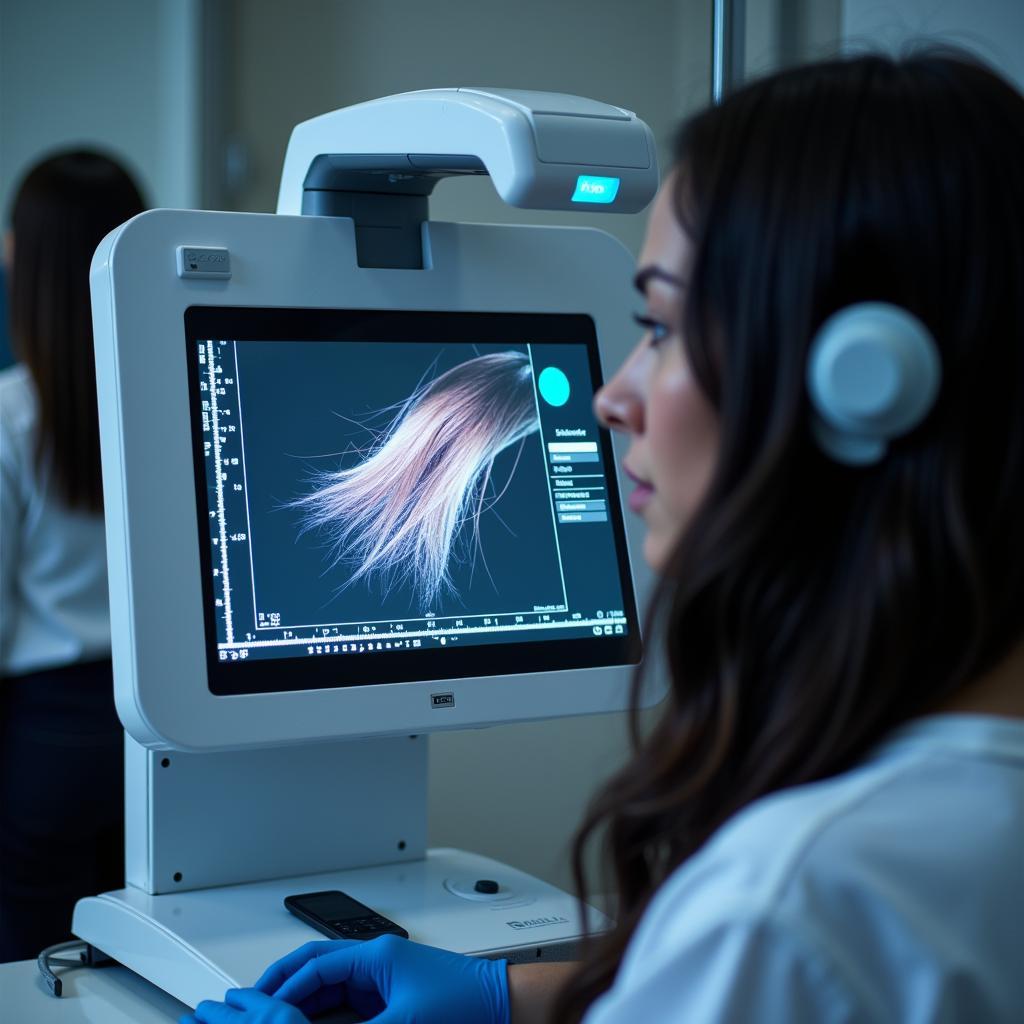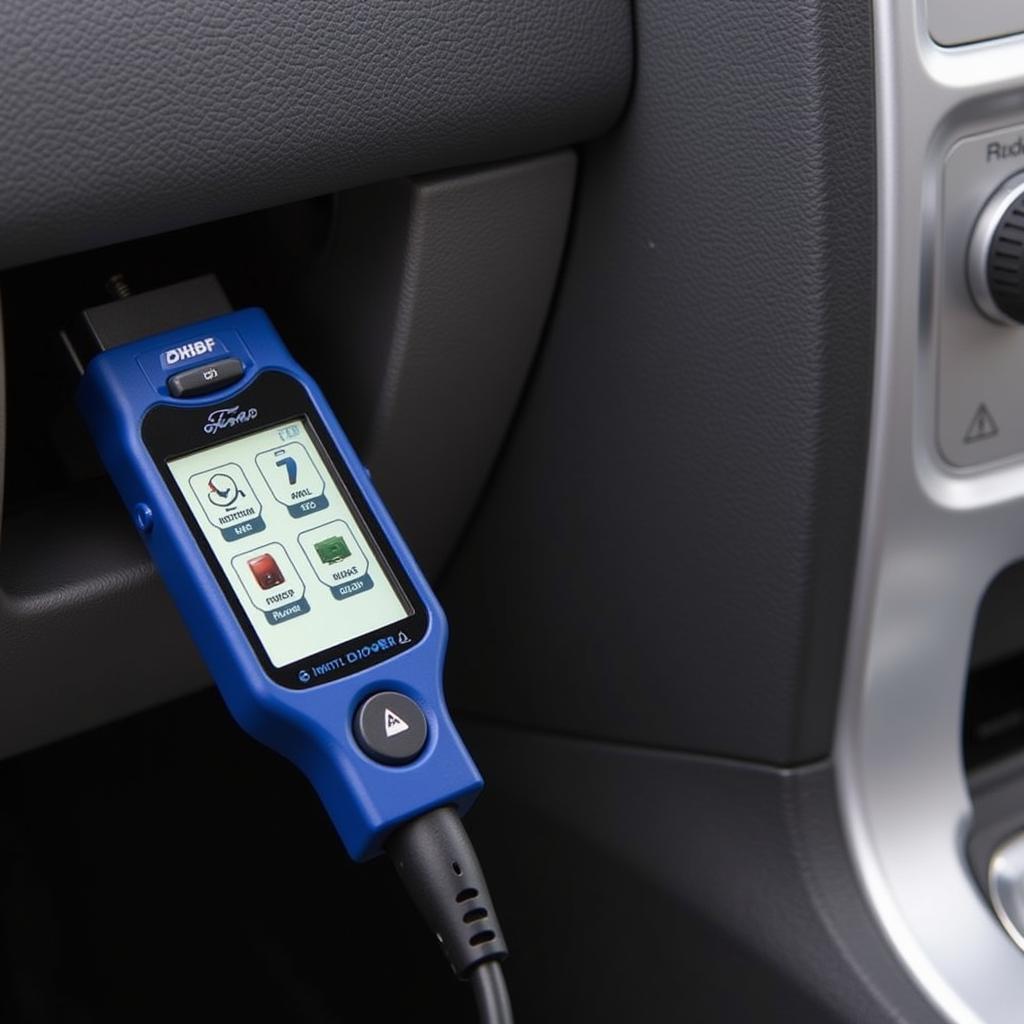One of the most critical, yet often misunderstood components of your vehicle’s emission control system is the catalytic converter. When it comes to car problems, a malfunctioning catalytic converter can cause a real headache. You might be wondering, “Can A Scan Tool Detect A Bad Catalytic Converter?” The answer is, in many cases, yes!
Understanding the Role of a Catalytic Converter
Before we delve into the diagnostics, it’s helpful to understand what a catalytic converter does. It’s essentially a metal box located within your vehicle’s exhaust system. Its job is vital: to convert harmful pollutants in exhaust gases into less harmful substances before they leave your tailpipe.
How Scan Tools Can Help Diagnose Catalytic Converter Issues
A scan tool, also known as an OBD-II scanner, is a powerful diagnostic tool that communicates with your vehicle’s computer. It can read diagnostic trouble codes (DTCs) stored in the computer, providing valuable insights into potential problems, including those related to your catalytic converter.
Here’s how a scan tool can help detect a bad catalytic converter:
- Oxygen Sensor Readings: Scan tools display live data from your oxygen sensors, located before and after the catalytic converter. Significant differences in readings between the two sensors can indicate a catalytic converter that’s not functioning efficiently.
- Catalytic Converter Efficiency Codes: Specific DTCs, such as P0420 (Catalyst System Efficiency Below Threshold (Bank 1)) or P0430 (Catalyst System Efficiency Below Threshold (Bank 2)), directly relate to catalytic converter performance.
Limitations of Scan Tools in Diagnosing Catalytic Converters
While scan tools are invaluable for detecting potential catalytic converter issues, it’s important to remember they have limitations:
- Indirect Diagnosis: Scan tools don’t directly measure the health of the catalytic converter. They rely on interpreting data from other sensors, which might be influenced by factors beyond the converter itself.
- False Positives: Other issues, like a faulty oxygen sensor, exhaust leaks, or engine misfires, can trigger similar DTCs as a bad catalytic converter.
“It’s crucial to remember that a scan tool is a starting point for diagnosis, not a definitive answer,” says John Miller, a seasoned automotive engineer with over 20 years of experience. “Always consider the scan tool data in conjunction with other symptoms and a thorough visual inspection.”
Common Symptoms of a Bad Catalytic Converter
Beyond the information provided by a scan tool, physical symptoms often accompany a failing catalytic converter. These include:
- Reduced Engine Performance: A clogged catalytic converter can restrict exhaust flow, leading to decreased acceleration and overall power.
- Rattling Noise: Internal damage to the catalytic converter, often caused by a cracked ceramic honeycomb structure, can create a rattling sound, especially during acceleration.
- Sulphur-like Smell: If you notice a strong, unpleasant odor resembling rotten eggs coming from your exhaust, it can indicate a failing catalytic converter unable to process hydrogen sulfide effectively.
What to Do If You Suspect a Catalytic Converter Problem
If you suspect a problem with your catalytic converter, especially after using a scan tool, take your vehicle to a qualified mechanic specializing in exhaust systems. They have the expertise and equipment to perform a comprehensive diagnosis, including:
- Visual Inspection: Checking the converter for physical damage, rust, or discoloration.
- Exhaust Back Pressure Test: Measuring exhaust pressure to determine if the catalytic converter is clogged.
- Professional-Grade Scan Tool Analysis: Utilizing advanced scan tools to access a wider range of data and perform more in-depth diagnostics.
Conclusion: Scan Tools Play a Crucial Role, but Aren’t the Only Answer
So, can a scan tool detect a bad catalytic converter? The answer is a qualified yes. Scan tools provide essential data, but it’s crucial to remember their limitations and the importance of a holistic diagnostic approach. Combining scan tool information with a thorough visual inspection and, if necessary, professional-grade diagnostics, ensures an accurate diagnosis and effective repair for your catalytic converter issues.
If you have any concerns about your vehicle’s emission system or require expert assistance, don’t hesitate to contact us at ScanToolUS. Our team of experienced technicians is dedicated to providing top-notch diagnostic and repair services. You can reach us at +1 (641) 206-8880 or visit our office at 1615 S Laramie Ave, Cicero, IL 60804, USA. We’re here to help get your car back on the road in optimal condition.


